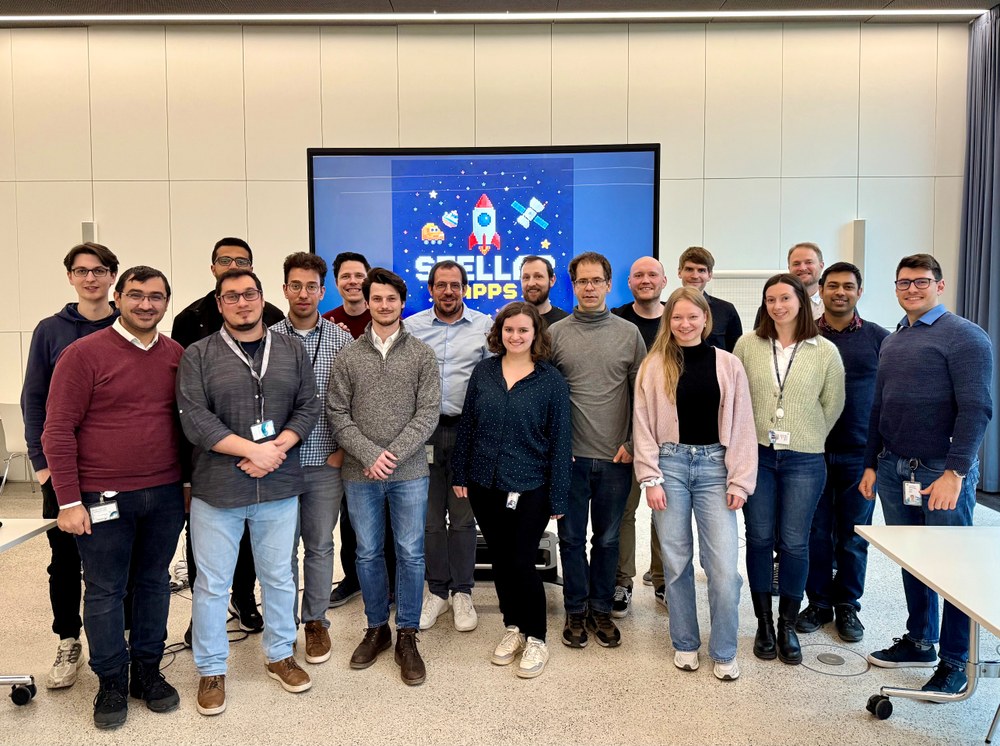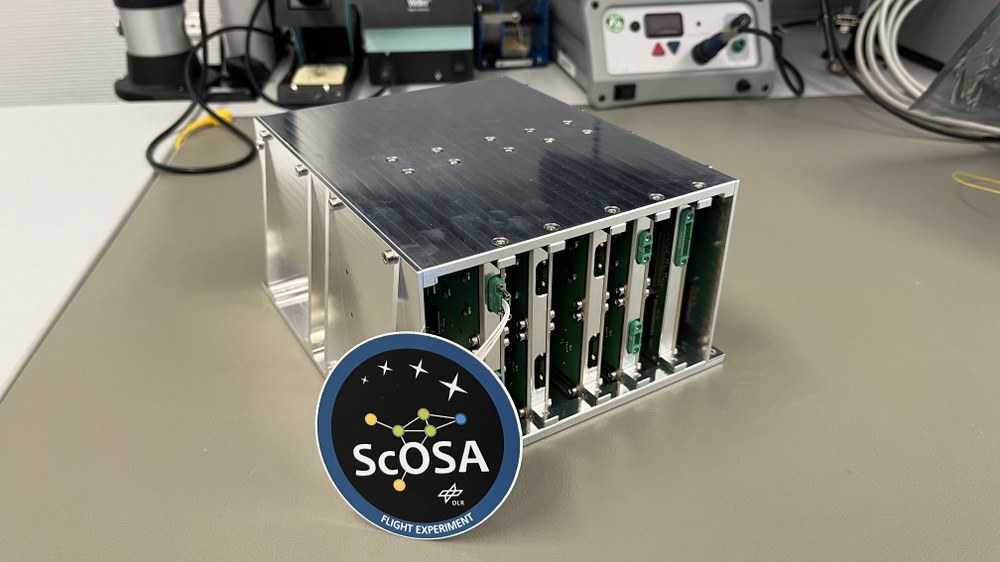Stellar Apps
In the DLR project Stellar Apps, an innovative software platform is being developed that enables the secure execution of applications directly onboard spacecraft such as satellites, rovers, and rockets. These applications control the spacecraft, conduct scientific experiments, and analyze large volumes of data — increasingly with the support of artificial intelligence.

DLR
In the Stellar Apps project, a secure platform is being developed for executing software directly onboard spacecraft. These onboard software applications run on computers inside satellites, rovers, and rockets, performing critical tasks such as spacecraft control, attitude regulation, and the execution of scientific experiments. Stellar Apps simplifies the installation and operation of these applications, allowing early software versions to be tested in orbit much faster than before.
A key objective is to execute these applications in isolation, ensuring that they do not endanger other applications or the spacecraft itself. In addition, a specialized environment for artificial intelligence is being developed, enabling applications to efficiently integrate AI-based processes.
Onboard Data Processing
Modern space missions generate increasingly large volumes of data — from high-resolution cameras, complex sensors, or new applications. However, not all data can be transmitted to Earth, as bandwidth and transmission time are often limited. For this reason, it is important to analyze data directly in space: essential scientific insights should be pre-filtered and processed onboard before being sent to Earth. Stellar Apps makes this kind of onboard data processing possible.
More Autonomy for Spacecraft
In addition to onboard scientific data processing, spacecraft autonomy is becoming increasingly important. Especially for satellite constellations comprising hundreds or even thousands of satellites, significantly higher levels of operational autonomy are required. Spacecraft must be capable of monitoring their own status, detecting anomalies early, and responding as autonomously as possible.

Further Development of the Onboard Computer ScOSA
As part of various ScOSA projects (Scalable On-board Computing for Space Avionics), DLR has already developed a powerful distributed computing architecture for spacecraft. In the Stellar Apps project, this technology is being further optimized and brought up to date. The software platform is not tied to specific hardware, ensuring flexible deployment across a wide range of spacecraft.

In-Orbit Testing: Applications for Use in Space
Another major focus of Stellar Apps is the development of space applications towards flight readiness. Seven selected applications are being prepared for in-orbit testing to validate their functionality directly in space. The plan is to use the second mission year of the CAPTn-1 satellite for this purpose: Stellar Apps, the applications, and the updated ScOSA flight computer will be tested in a real mission scenario.
Project runtime:
- 01/2025 - 12/2027
Scientific participants:
Publications on this project:
Contact
Daniel Lüdtke
